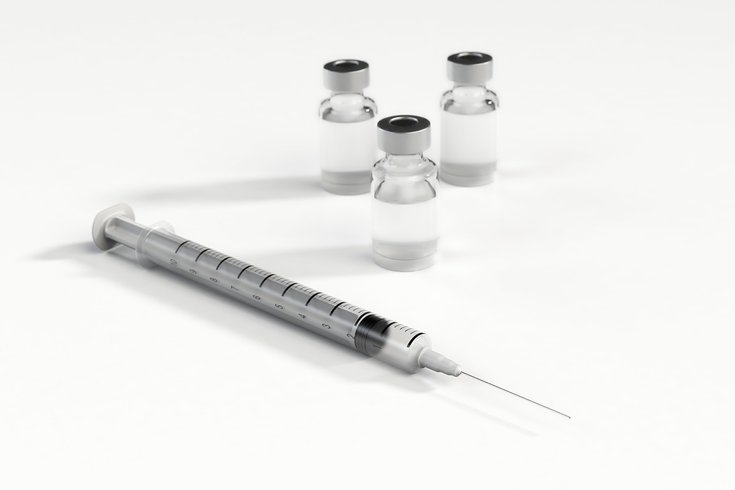
May 28, 2024
 AREK SOCHA/PIXABAY
AREK SOCHA/PIXABAY
Researchers at Thomas Jefferson University report that men and boys who get the HPV vaccine can cut their long-term risk of head and neck cancers by more than half.
Adolescent boys and men who get HPV vaccines have a significantly lower risk of developing head and neck cancers later in life, according to a long-term study out of Thomas Jefferson University.
HPV, or human papillomavirus, is a sexually transmitted infection that about 85% of sexually active, unvaccinated people get during their lifetimes, the Centers for Disease Control & Prevention says. It is the leading cause of cervical cancer in women. High-risk strains of the virus are targeted by the HPV vaccine, which was initially approved in 2006 to lower the risk of cervical cancer and precancer – abnormal cells on the cervix that can lead to cancer – in adolescent girls.
The vaccine is usually given in a series of two or three doses depending on the age of the person receiving it. Recent research has shown even a single does offers ample protection. It's recommended for women and men up to 27 years old. Anyone up to 45 can still get vaccinated.
Although HPV's risks are more widely known to affect women, the virus also accounts for up to 70% of head and neck cancers in men. These cancers are more than twice as common in men than women and generally are curable if caught early. Oropharyngeal cancers, which affect the throat, now account for a greater share of HPV-related cancer cases in the U.S. than cervical cancer — about 12,500 annual cases in men compared to 10,500 cervical cancer cases in women.
The Jefferson study looked at health records from about 3.5 million people in the U.S. who had received any type of vaccination between ages 9-39. During the study period between 2010 and 2023, about half of the 1.5 million men who received vaccinations were immunized against HPV. Another 1 million women also got the HPV vaccine.
Men who got the HPV vaccine were 54% less likely to develop cancer than those who didn't get vaccinated, the researchers found. Most of the lowered risk came with reductions in head and neck cancers. In vaccinated women, there was about 30% lower risk of any HPV-related cancer, including cervical cancer.
"We want males to be thinking about HPV vaccination not just as something that protects female patients, but also male patients," Jefferson DeKloe, the study's co-author and a research fellow in Jefferson's otolaryngology department, told NBC News.
The findings were presented at the 2024 meeting of the American Society of Clinical Oncology, where another study reported low but increasing rates of HPV vaccination among all groups. Between 2011 and 2020, the number of boys and men who got the vaccine rose from 7.8% to 34.6%. Among girls and women, the rate increased from 37.7% to 49.4%. About 75% of U.S. teens had received at least one dose of the HPV vaccine in 2021.
One of the challenges for HPV awareness is that there currently is no way to directly test for the virus in men. In women, cells collected from the cervix during a Pap smear can be used to identify the infection and the strains that are present. The FDA recently approved an at-home, self-collection HPV screening for women to make detection simpler and less invasive.
Since most HPV-related cancers don't appear until years after an infection, the vaccine is sometimes viewed as preventing a sexually transmitted disease instead of its broader purpose to prevent cancer. The CDC estimates the HPV vaccine could be effective at preventing more than 90% of cancers that are attributed to the virus.
"We think the maximum benefit from the vaccine will actually happen in the next two or three decades," co-author Dr. Joseph Curry, a head and neck surgeon at Jefferson's Sidney Kimmel Cancer Center in Philadelphia, told the Associated Press. "What we're showing here is an early wave of effect."